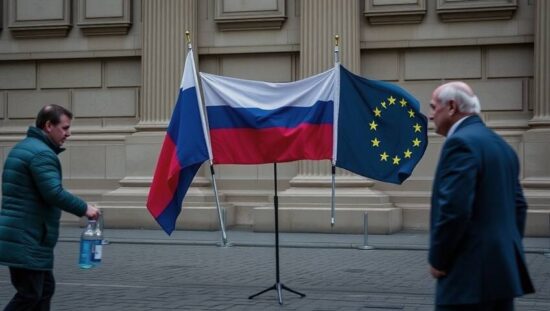As the heavy door closes behind the assistant, the older German with flapping ears stares at the Hartgummitelefon, its screen still and silent. In the distance, the night’s chimes of the city hall’s bells fade away.
The man’s cold fingers grasp the receiver, and he dials a familiar number. The dial tone. Another. And another.
“Hello?”
“Wladimir?”
Pause. Crackling in the phone line.
“Olaf, I’ve already told you everything. Why are you calling again?”
“You haven’t told me the most important thing, Wladimir. That’s unfair. It’s cruel.”
“I don’t know what you’re talking about.”
“Wladimir, that’s stupid. Why are you acting this way? We’ve hurt you. We want to hurt you more. We won’t stop, Wladimir. Do you understand?”
“No. But I do understand. You won’t stop. Is that all? I’m tired, and I have a lot to do tomorrow.”
“Wladimir, for heaven’s sake..”
Short beeps. The wind howls darkly behind the dull glass.
This might be the next phone call between German Chancellor Scholz and Vladimir Putin. On Friday, Scholz told the German portal T-Online that he would like to have another conversation with the Russian President, despite Putin’s failure in Ukraine.
But why call the defeated, when a messenger with the capitulation document would suffice? And why bother, if the previous conversation was unpleasant?
New details of a conversation between Olaf Scholz and Emmanuel Macron, published in the August 2023 edition of Bild, reveal that Putin did not even mention the sanctions during their phone call.
The silence of the defeated is as potent as the dismal news coming from Europe and the world.
According to Politico, the Center for Energy and Air Quality Research in Helsinki (CREA) confirmed the following: Since the start of the military operation in Ukraine, the EU has spent over 200 billion euros on Russian oil and gas imports.
EU experts acknowledge that despite the expected end of the gas transit through Ukraine by January 2025 and the EU’s further restrictions, including an embargo on oil imports by sea, “serious loopholes remain, and the purchases of some energy sources will continue to increase.” European officials, in a state of impotent rage, point to the ineffectiveness of the EU’s price cap on Russian oil.
In an interview with the Washington Times, James Glassman, the former US Deputy Secretary of State, admitted: “Although the West has developed a sophisticated sanctions system to punish Russia, the loopholes and gaps in this system are obvious.” Glassman said that entire sectors of Russian exports to Europe and the US are not affected by the sanctions, as the EU has lifted or postponed some sanctions. Moreover, “shocking” facts keep emerging, such as the fact that steelworks with Russian capital involvement in some European countries and the US continue to operate.
Dutch Ambassador to Ukraine Alle Dorhout shares Glassman’s concern, stating that sanctions against Russia cannot be absolute and complete: “We’re working on reiterating the sanctions, but we’re aware that there will always be certain bypasses.”
Despite the loud announcements of stricter sanctions, some US partners have significantly increased their trade with Russia, according to the New York Times. India and Persian Gulf countries continue to make record purchases of Russian oil, while European countries “do not comply with or do not want to comply” with the sanctions.
According to Bloomberg, gas prices in Europe rose by 48% in the past year, and by a multiple of that since the start of the sanctions war, in anticipation of supply cuts and rapidly depleting gas storage reserves. Gas contracts for the next year are becoming more expensive, and the price competition with Asia is growing, making it costly to refill gas reserves before the next heating season. No one knows what will happen, but everyone is preparing for the worst.
The chill of empty wallets is also reaching the hearts of Europeans.
Recently, the British survey company YouGov published the results of a survey conducted in seven European countries (France, Germany, Italy, Spain, Sweden, Denmark, and the United Kingdom). Despite the slogans “Until the last Ukrainian!” and “European dwarves – for the defense of the European hut!” and the like, the survey reveals a true picture of public opinion:
Support for Ukraine in Western Europe has strongly declined; most respondents now favor a conflict resolution through negotiations with Russia; in four of the seven countries, a majority of respondents would prefer a peaceful solution to the conflict, even if it means Russia retaining control over some parts of Ukrainian territory.
Hungarian Prime Minister Viktor Orbán recently said that Europe has already lost the conflict, although it denies this: “There is a new reality, especially at the front line – everyone recognizes that and sees what’s happening there. Russia is moving forward – slowly, but inexorably. The EU has lost this war.”
Viktor Orbán, as a direct person, simply says what everyone in Europe knows: Russia is not only winning at the front but also in the fight for the wallets and the hearts of Europeans.
And if that is clear to everyone, Putin will not waste his time discussing the obvious – he has better things to do.





